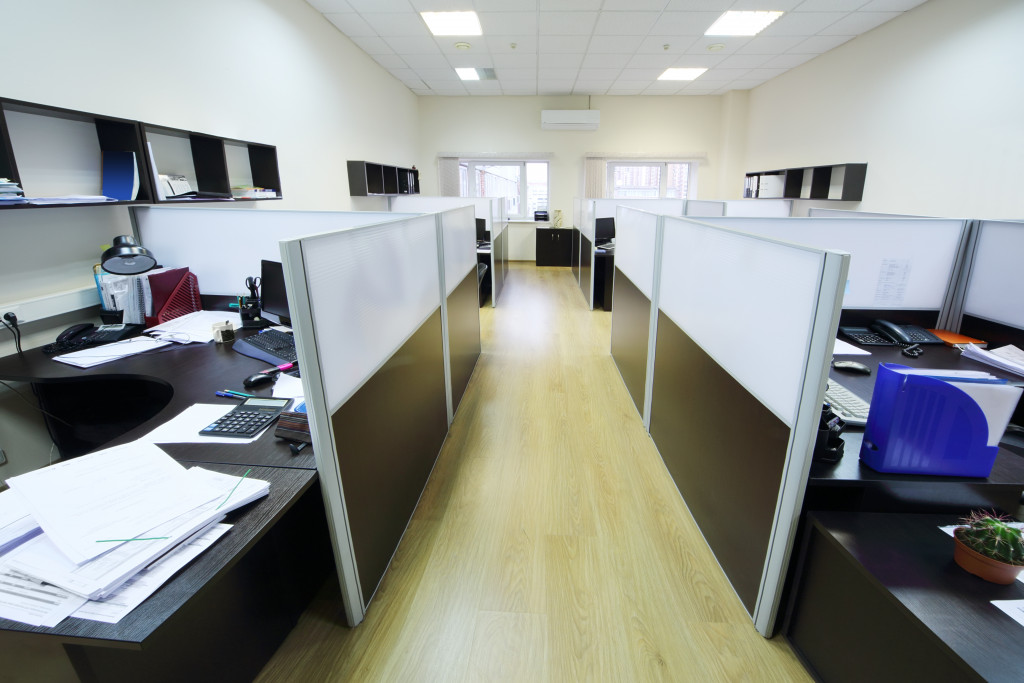If you work in an office, you know the last thing you need is a broken piece of equipment. Not only can it cause delays and frustration, but it can also be expensive to repair or replace. Here are seven ways to help prevent office equipment from breaking down.
Ensure Slight Cold Temperature
It’s important to ensure that your office equipment is operating in a temperature range that won’t damage it. If the temperature is too hot, the equipment can break down. Most equipment function well in cold temperatures, especially PCs and desktops that can get hot while functioning. Hence, you must ensure a slightly cold temperature for your office equipment.
If you don’t have an AC or the one you have isn’t cooling appropriately, it is best to hire air conditioning services for better efficiency. These service providers can inspect your AC to determine any problems and solve them for better cooling.
Be Careful With Power Surges
A power surge is a sudden and brief increase in voltage. While they typically last less than a second, power surges can damage electronic equipment. In fact, according to the Insurance Information Institute, lightning is responsible for nearly $5 billion in damages each year in the United States.
There are some ways to protect your office equipment from power surges. First, unplug electronics when they’re not in use. This will prevent them from being damaged if there is a surge while plugging in. Second, invest in surge protectors. Surge protectors provide an extra layer of protection by absorbing excess voltage and redirecting it to the ground. Third, have your electrical system inspected regularly. This will ensure that it is up to code and can handle any demand increases.
Avoid Hazardous Substances
A hazardous substance can cause a breakdown of office equipment, costing businesses time and money. To avoid this, use only mild cleaners and follow the manufacturer’s instructions. For example, using a window cleaner on a computer screen can damage the display.
When cleaning keyboards, avoid moisture inside the keys using a compressed air duster instead of a wet cloth. Be sure to unplug all electrical equipment before cleaning it, and never use chemicals near open flames.

Be Gentle With Cables
In any office, countless cables run from the outlets to the different pieces of equipment. These cables are responsible for supplying power to everything from computers to printers. However, they are also vulnerable to damage.
A sharp tug can easily snap a power cord, and a well-placed kick can dislodge a cable from its connection. As a result, it is important to be gentle with cables to prevent office equipment breakdown. Use your hands to guide cables instead of pulling on them whenever possible. When disconnecting cables, grasp the connector firmly and pull it straight out. Be careful not to twist or bend the cable itself.
Follow the Manufacturer’s Instructions
Office equipment is essential to any business, and it’s important to keep it running smoothly. One way to do this is by following the manufacturer’s instructions. This may seem common sense, but many people don’t realize that different types of office equipment require different levels of care.
For example, laser printers should be cleaned regularly to prevent the buildup of toner dust, which can lead to clogging and reduced print quality. On the other hand, computers need to be ventilated to prevent overheating. And all office equipment should be used following the manufacturer’s warranty to ensure full coverage in case of any problems. By taking a few simple steps, you can extend the lifespan of your office equipment and avoid costly repairs down the road.
Have a Backup Plan
Office equipment comprises various office setup machines like computers, printers, telephones, servers, etc. They form an integral part of an organization’s successful functioning. Despite their indispensability, they are prone to breakdowns and faults.
Therefore, it is always advisable for organizations to have a backup plan to prevent office equipment breakdown. Businesses can ensure continuous functioning in case of any technical glitch by having a backup plan. There are many ways of having a backup plan. For example, organizations can maintain duplicate copies of important documents and data. They can also invest in spare parts and get them repaired or replaced from time to time. Moreover, businesses can also keep a reserve fund to deal with unforeseen situations.
By following these simple tips, businesses can prevent office equipment breakdowns and keep their office running smoothly. Businesses can avoid costly repairs and downtime by taking a few precautions and being careful with their office equipment. A backup plan is always advisable to ensure continuous functioning in case of unforeseen problems. By preparing for the worst-case scenario, businesses can keep their office running smoothly and efficiently.
